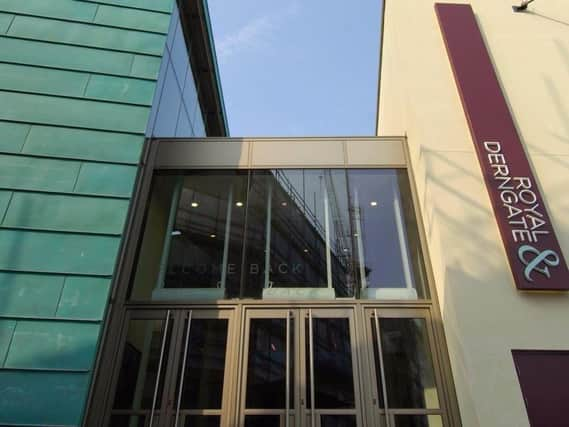'Why has the Government not acted on desperate pleas for a rescue package for the arts?'


We need a rescue package for the arts during this public health crisis. I took part in a lockdown arts challenge to recreate famous artworks in my home.
With a minimal set of props, I became Frieda Kahlo, Mona Lisa and the Girl with a Pearl Earring.
Advertisement
Hide AdAdvertisement
Hide AdThe challenge was set up by several arts museums across the globe to help entertain people during lockdown. The arts have, in fact, been fundamental to people’s well-being during this time, thanks to films and TV, online theatre performance and music gigs, to virtual arts and museum visits and online drawing clubs.
In the roll call of key workers that we have to thank during this public health crisis, artists need to be added to that list for being key to supporting our emotional and mental well-being.
Alongside sport, the arts and music are massively under-funded in schools; as one PE teacher pointed out on Twitter: “If they are all essential for keeping us sane in lockdown, why aren’t they just as essential when it comes to funding?”
A rescue package has been provided for the business and charitable sector by the Government, but it has yet to be forthcoming for the arts and culture sector and it is urgently needed.
Advertisement
Hide AdAdvertisement
Hide AdWhilst funders, such as the Arts Council, are being flexible to help theatres, and arts organisations compensate for losses, and bursaries have been set up for musicians and creatives to compensate for lost earnings, it is simply not enough.
James Smith, director of Looking Glass Theatre and technician at the Royal and Derngate in Northampton, highlighted the urgency: “As a theatre practitioner in the arts, Covid-19 for us and for theatre generally has been devastating. To see most bookings for six months cancelled overnight – apart from support from Northampton Borough Council with our virtual tours, which we thank them for – and friends and colleagues suddenly without work was like a very bad nightmare.
“We fight on in the hope that we can get through this, but without certainty of a cure or government emergency support to get venues through the next year, more theatres will close and jobs will be lost.”
A recent report by Oxford Economics estimated that at least one in five jobs will be cut from the UK creative industries without an intervention. Due to social distancing it is unclear when theatres and live music venues will be able to reopen and many are now at risk of permanent closure.
Advertisement
Hide AdAdvertisement
Hide AdThis includes the Royal & Derngate. Back in April, an open letter was sent to the Government signed by 400 high-profile artists urging government intervention, stating that it ‘cannot allow the UK to lose half of its creative businesses and become a cultural wasteland’.
The call to action is yet to be answered. In the meantime many who work within the arts industries are at serious risk of falling into poverty due to having been on freelance and zero-hour contracts. The arts contribute billions to the economy and it will be the arts which will be fundamental to bringing people and communities back together post Covid-19.
They will need this essential support to also allow organisations to transition into an uncertain economic landscape and recession. They will need time, just like other sectors, to re-adjust into a world in which they look to provide digital and face-to-face experiences that comply with ongoing social distancing rules. That means substantial financial support to allow the sector to invest in technology, equipment and securing jobs.
It is apparent that the ongoing economic impact on many during this pandemic presents a case for the introduction of universal basic income for those in the arts industries and across all sectors. This would restore dignity to many and reduce the costs on the welfare system, which in its current model as universal credit is punitive, not enabling.
Advertisement
Hide AdAdvertisement
Hide AdIt would help the arts sector to keep nurturing talent and for people to be allowed to make a living wage.
The arts have been a lifeline to many in lockdown.
We owe it, and its dedicated workforce, the same crucial help and for the sake of a nation’s health and wellbeing.